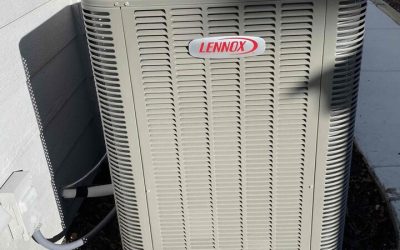An intercooler is a vital component in many industrial and commercial applications, enhancing the efficiency and performance of air compressors. Maintaining lower air temperatures during the compression phases reduces the strain on the equipment, leading to improved overall performance and extended lifespan. This cooling process is essential for maintaining optimal functionality in various systems, whether in large-scale HVAC, automotive, or manufacturing environments.
The Operation of an Air Compressor Intercooler
An air compressor intercooler has a very quiet yet very efficient purpose. A multi-stage air compressor compresses air in stages, and the intercooler cools the air in between. Lower operating expenses and more energy efficiency result from the intercooler’s ability to chill the air and need less energy to compress further. The compressor’s integrity is preserved by reducing overheating, which might result in mechanical failures, which is the secondary advantage. It is natural for compressed air to warm up. Uncontrolled heat can cause various issues, including reduced efficiency and increased wear and tear on the compressor’s components. By releasing heat and lowering the air temperature before the air enters the subsequent compression stage, the intercooler helps to alleviate these issues. This procedure guarantees that the compressor runs smoothly and dependably over time, in addition to saving energy.
The Role of a Compressor Intercooler in Various Applications
The compressor intercooler plays a vital role in diverse industries, from automotive to manufacturing. For example, in automotive applications, the intercooler cools the air before it enters the engine cylinders, increasing the performance of turbocharged engines. Because this cooled air is denser, there is more oxygen available for burning, which improves engine efficiency and performance. The compressor intercooler holds comparable significance in industrial environments. The added efficiency that an intercooler offers is beneficial to factories and facilities that use air compressors to power tools and machinery. Cooler air lowers the chance of overheating, improves consistency in pneumatic tool operation, and eventually results in longer-lasting equipment. The compressor intercooler is also valuable in HVAC systems. Sustaining the proper temperature of compressed air is essential for the effective functioning of large-scale HVAC systems. Even under high loads, the system operates smoothly and effectively thanks to the intercooler’s assistance in maintaining temperature stability.
Maintenance and Care of an Air Compressor Intercooler
An air compressor intercooler must undergo routine maintenance to function accurately and last a long time. The intercooler’s capacity to efficiently cool the air may be hampered over time if it accumulates debris or experiences wear and tear. Routine cleanings and inspections can prevent these problems and keep the intercooler in good operating order. Maintaining the intercooler properly also entails looking for any indications of corrosion or leaks. By taking care of these concerns early on, you can avoid more expensive repairs or replacements as well as more severe problems later on. A vital component in numerous systems, the intercooler plays a crucial role in cooling processes, ensuring the protection of equipment and boosting overall efficiency. This cooling device is indispensable for maintaining optimal performance across various types of compressors, whether used in industrial machinery, automobile engines, or HVAC systems.


